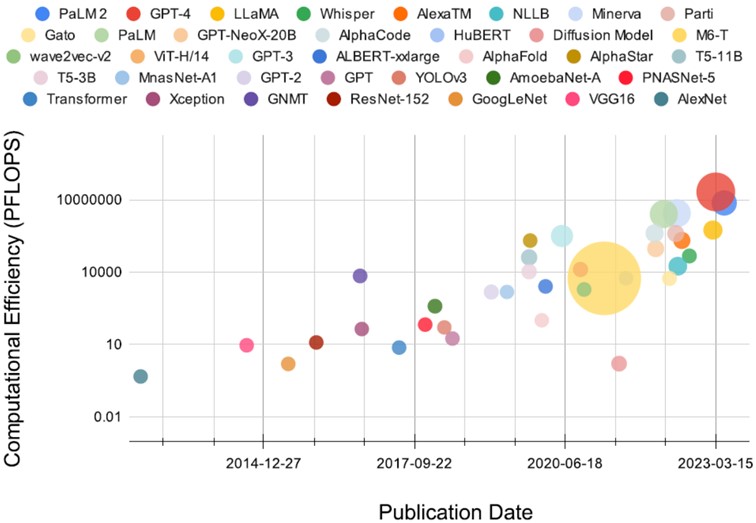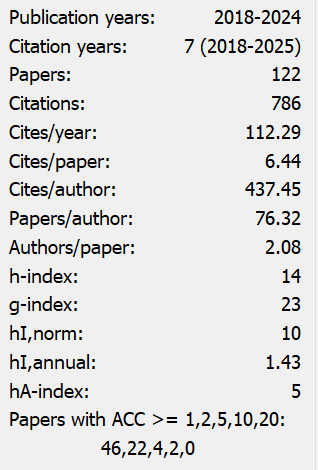The Multifaceted Relationship Between AI and Economics: Impacts, Challenges, and Insights
Abstract
Artificial intelligence (AI) has the potential to enhance decision-making by offering precise and timely information to businesses and policymakers. This study delves into the intricate relationship between AI and economics, with a specific focus on three key domains: Supply Chain Optimization, Financial Fraud Detection, and Automation's Impact on the Workforce. By shedding light on both the advantages and challenges of AI integration in economics, this research aims to contribute to the ongoing discussion. The research objectives encompass exploring AI's influence on the multifaceted relationship with economics, offering valuable insights for policymakers, industry stakeholders, and researchers.
References
Epoch, "Parameter, Compute and Data Trends in Machine Learning". Published online at epochai.org. Retrieved 2023, from https://epochai.org/mlinputs/visualization
Larcelet-Prost, J. R. (2023). 5 Ways AI Prevents Fraud in Banking and Fintech. ReadSpeaker. https://www.readspeaker.com/blog/anti-fraud-ai/
Manyika, J., & Sneader, K. (2018). AI, automation, and the future of work: Ten things to solve for. McKinsey & Company. Retrieved from https://www.mckinsey.com/featured-insights/future-of-work/ai-automation-and-the-future-of-work-ten-things-to-solve-for
Mohsen, B. M. (2023). Impact of Artificial Intelligence on Supply Chain Management Performance. Journal of Service Science and Management, 16(01), 44-58. https://doi.org/10.4236/jssm.2023.161004
NYU IT. (n.d.). Hudson HPC/AI Cluster. New York University. Retrieved 2023, from https://www.nyu.edu/life/information-technology/research-computing-services/high-performance-computing/high-performance-computing-nyu-it/hpc-supercomputer-clusters/hudson.html#:~:text=The%20cluster%20can%20perform%20one,computing%20data%20center%20
Walter, S. (2023). AI impacts on supply chain performance : a manufacturing use case study. Discover Artificial Intelligence, 3(1), 18. https://doi.org/10.1007/s44163-023-00061-9
Webb, M. (2023). Insights: Breaking Down the Transformative Journey of GPT Models in AI, from GPT-1 to GPT-4. Techopedia. Retrieved from https://www.techopedia.com/gpt-series-evolution-insights#:~:text=GPT%2D4%20was%20trained%20using%2021%20billion%20petaFLOPs
West, D. (2021). Using AI and machine learning to reduce government fraud. The Brookings Institution. Retrieved from https://www.brookings.edu/articles/using-ai-and-machine-learning-to-reduce-government-fraud/
Whitehouse. (2022). The Impact of Artificial Intelligence on the Future of Workforces in the European Union and the United States of America. Retrieved from https://www.whitehouse.gov/wp-content/uploads/2022/12/TTC-EC-CEA-AI-Report-12052022-1.pdf


This work is licensed under a Creative Commons Attribution 4.0 International License.
Copyright for this article is retained by the author(s), with first publication rights granted to the journal.
This is an open-access article distributed under the terms and conditions of the Creative Commons Attribution license (http://creativecommons.org/licenses/by/4.0/).


























